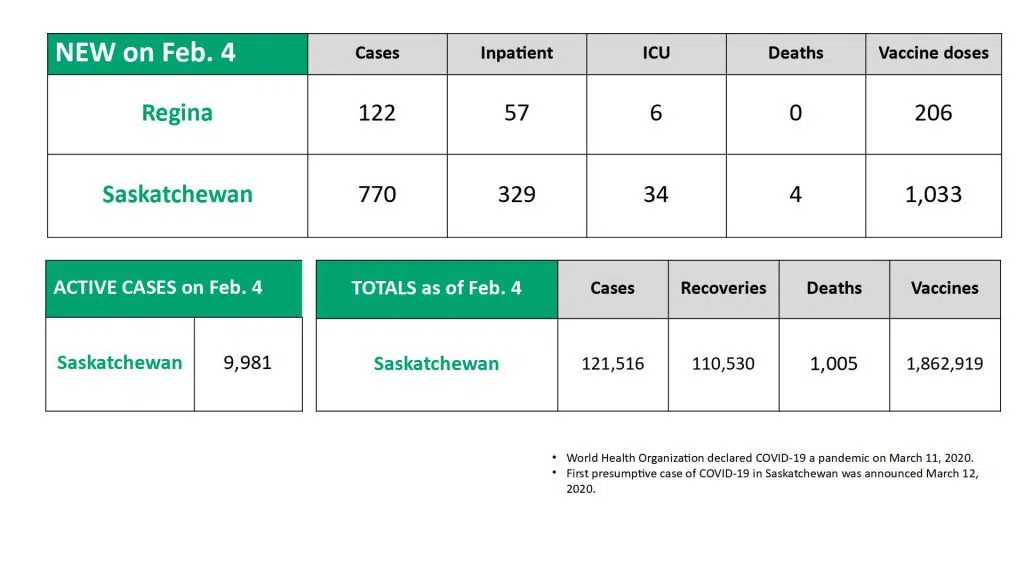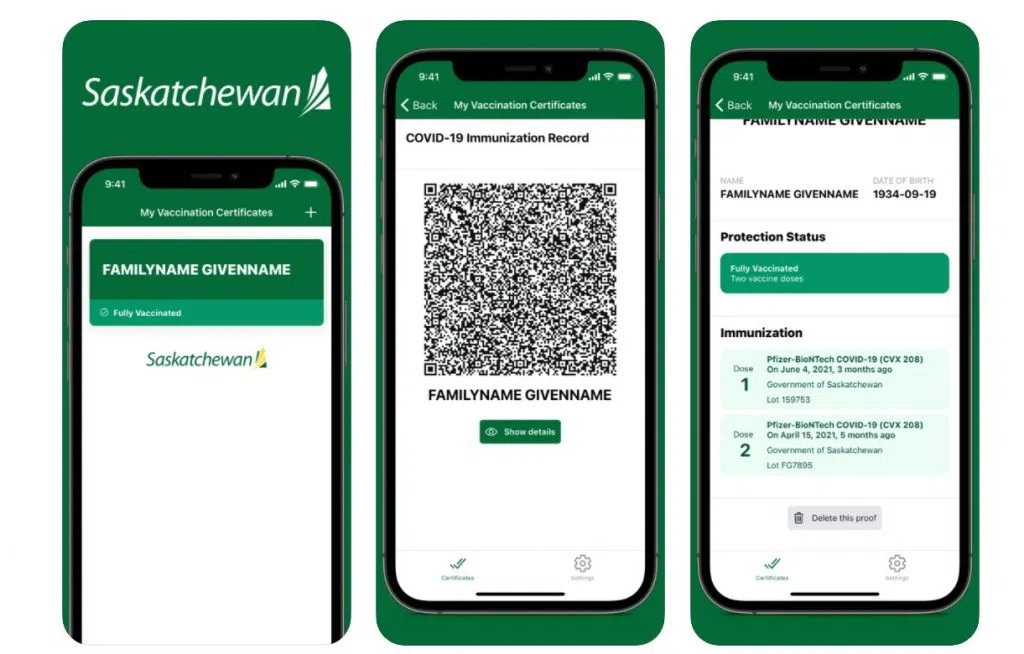Saskatchewan COVID-19 Update


Vaccine passports

On Oct. 1, Saskatchewan launched its proof-of-vaccination policy.
Proof of a COVID vaccination or a negative test result now is required in Saskatchewan to gain access to a range of businesses and event venues, as well as for all Government of Saskatchewan ministry, Crown and agency employees.
The businesses and venues that fall under the policy include:
- Seated dining at all restaurants, including fast food restaurants;
- Nightclubs, bars, taverns and other licensed establishments;
- Event and entertainment venues, including conference centres, casinos, movie theatres, concert venues, live-music venues, museums, and indoor facilities hosting ticketed sporting events;
- Liquor manufacturers conducting retail liquor sales;
- Liquor stores with an integrated permit that also hold a liquor restaurant or tavern permit;
- Liquor stores that have been issued standalone retail store permits issued by the Saskatchewan Liquor and Gaming Authority;
- Cannabis stores that have been issued standalone retail store permits by the Saskatchewan Liquor and Gaming Authority; and,
- Indoor fitness centres, and gyms.
Proof of vaccination isn’t required for:
- Retail businesses including grocery stores;
- Businesses holding an integrated liquor retail store permit that do not also hold a tavern or restaurant permit issued by the Saskatchewan Liquor and Gaming Authority;
- Businesses holding an integrated cannabis retail store permit issued by the Saskatchewan Liquor and Gaming Authority;
- Places of worship (including weddings/funerals/wakes);
- Personal services, health care services, professional services;
- Public libraries;
- Hotels or lodging including self-serve food options located within the hotel or other lodging;
- Facilities hosting amateur sporting events, including youth athletics and recreational leagues;
- Private gatherings at public venues (weddings/funerals/wakes/meetings); and,
- Private gatherings at private residences.
Children under 12 are exempt from the proof of vaccination or negative test requirement.
Acceptable documentation for proof of vaccination include:
- A QR code/MySaskHealthRecord vaccine certificate either printed or on the patron’s mobile device as a screenshot or in SK Vax Wallet;
- A printed hard copy of MySaskHealthRecord vaccine certificate with or without a QR code;
- Wallet cards issued at the time of vaccinations; and
- A COVID-19 vaccination printout from Saskatchewan Health Authority (SHA) public health.
Anyone 18 and older also have to show ID with their proof of vaccination. Youths aged 12 to 17 will need to have ID unless they’re accompanied by an adult with proof of vaccination and ID.
Individuals who don’t have proof of vaccination can instead provide proof of a negative COVID test result from within the previous 72 hours.
The result of a self-administered, take-home rapid antigen test won’t be accepted as valid proof of a negative result.
The Saskatchewan Health Authority is no longer testing asymptomatic people at its public testing sites, opting instead to test symptomatic people and others who are deemed at-risk.
The cost for all testing for asymptomatic individuals will be their responsibility.
Current public health measures
As of Sept. 17, the use of non-medical masks was required in all indoor public spaces in Saskatchewan.
The government is aiming to lift the order in late October, after the proof-of-vaccination or negative test requirement will have been in place for about three weeks.
Masks won’t be required at indoor youth athletics for those under the age of 18 while they’re participating in an athletic activity. However, masks will be required for entry and exit into the venues hosting youth athletics for athletes and spectators.
Ways to get a vaccination in Saskatchewan
Most people in Saskatchewan will visit one of these four places to get their vaccination.
1. Pop-up or walk-in clinics
First-come, first-serve
2. Book an appointment
The province shifted to a strategy of pop-up clinics on Aug. 8. However, appointments booked online are to continue for some smaller centres where pharmacy immunization is unavailable.
3. Community clinics
Pharmacies, physician offices, partnerships with community-based organizations
4. Mobile clinics
These clinics travel to rural and remote areas.






